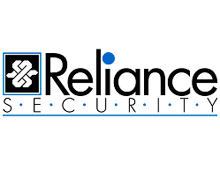
Mr Dickinson was commenting on the reforms introduced earlier this year, which outlawed unlicensed private security personnel and made their employment by businesses illegal. However, some businesses were continuing to use unlicensed staff, he said - a move that was making the job of enforcing the legislation difficult.
Mr Dickinson cited a recent police raid on 28 security firms in Liverpool suspected of using unlicensed staff which had yielded several arrests as well as stolen property and drugs. "And that was just one incident in one English city," he said. "The scale of the problem is widespread."
Real modernisation, said Mr Dickinson, was about attitude and that the mindset of some in both the security industry and its customers had to change. The business model employed by some security companies was beset by low margins, under-investment and negligible profits. "It's completely unsustainable," he added.
Since the reforms were introduced, there was growing evidence that licensed staff were commanding higher rates of pay. And the additional training and the kudos that went with that would begin to benefit customers in the long term. "Value will eventually take over from price as the key driver to security supply," said Mr Dickinson.
The process of reform was also the subject tackled by David Shaw, assistant chief constable of West Midlands Police. He urged both the police and the wider police community, including private security firms, to continue to drive innovation, despite the abandonment of the police force merger plan.
Some "very exciting thinking" had come about during the planning of the reforms and that attitude needed to continue in order for modernisation of the police service to continue.
More on Reliance Security